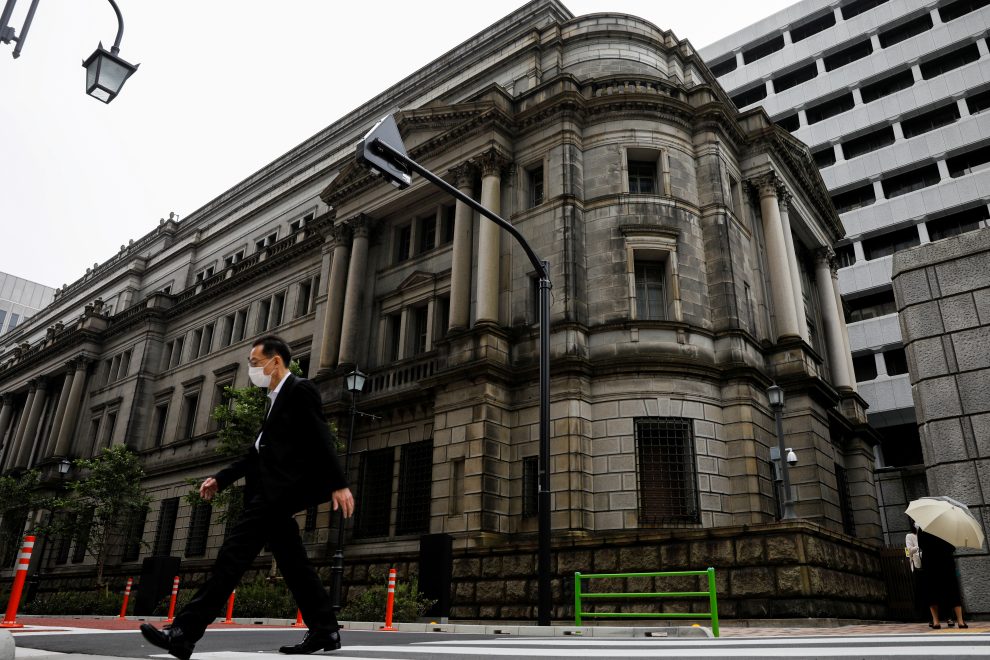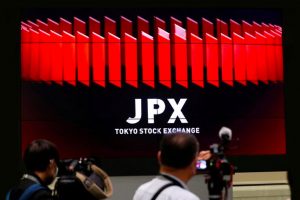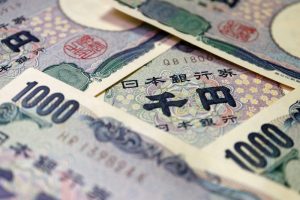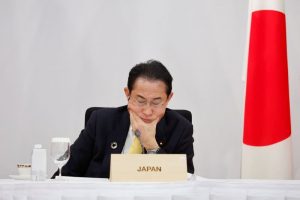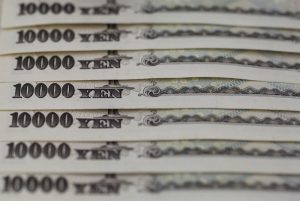Japan is unlikely to slide into stagflation – a condition where rising inflation and shrinking economic growth co-exist, a senior central bank official said on Wednesday as data showed the economy grew at a smaller rate than expected in the fourth quarter.
With the Ukraine crisis triggering sharp rises in energy and commodity prices, consumer inflation will “clearly accelerate” as firms pass on the costs to households, Seiichi Shimizu, head of the Bank of Japan‘s monetary affairs department, said.
“But we don’t expect Japan to face a stagflation-like situation, defined as a combination of rising inflation and a contraction in economic growth,” he told parliament.
“We expect Japan’s economy to recover as the hit to service consumption from the coronavirus pandemic eases,” adding to support from solid external demand, he said.
The remarks, which come ahead of the BOJ’s policy meeting next week, suggest the central bank will stick to its projection of a moderate economic recovery but acknowledge rising inflationary pressure from the recent surge in energy prices.
Under an assessment made in January, the BOJ currently projects consumer inflation to “accelerate” as companies “gradually” pass on rising raw material costs to households.
Japan’s economic rebound was softer than initial estimates in the final quarter of 2021, revised data showed on Wednesday, as the pickup seen in consumer and business spending was weaker than first reported.
Bad News For Policymakers
The smaller growth is bad news for policymakers tasked with keeping the country’s fragile recovery on track.
Revised gross domestic product (GDP) data released by the Cabinet Office on Wednesday showed Japan expanded an annualised 4.6% in October-December.
That was lower than economists’ median forecast for a 5.6% gain and the preliminary reading of 5.4% released last month.
While rising commodity and grain costs will push up energy and food prices in the short-term, it will hurt the economy in the long run through declines in household income and corporate profits, Shimizu said.
“The most direct spill-over from the Ukraine-Russia conflict is via the inflation route,” Eugene Leow, senior rates strategist at DBS Bank, said, referring to the world’s major economies.
“With supply-chain and sanctions impeding the flow of commodities – wheat, oil and gas in particular – the inflation picture, already problematic due to Covid-19, just got worse.
He said there are no easy solutions to the inflation issue even if the conflict is resolved. “Sanctions will likely still remove a chunk of commodities from the world economy,” Leow said. “The upshot to this is that inflation will be higher for longer.”
- Reuters, with additional editing by George Russell
READ MORE:
Asia Markets On Edge As Ukraine And Inflation Fears Weigh
IMF’s Georgieva Says It Is Too Early to Predict World Inflation




